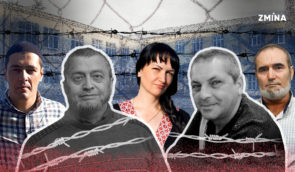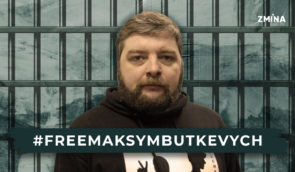Educational institutions train law enforcers under the old system
According to the survey conducted among about 100 experts throughout Ukraine in July-September, 65% believe that the reform of judicial system and law enforcement agencies is one of the key tasks, said Serhiy Kishchenko, acting executive director of the International Centre for Policy Studies.
5% of the experts could not answer the question, 30% named other options – the civil service reform and termination of the military conflict in the east, the Human Rights Information Center correspondent informs.
“Among the drawbacks are delay in the reform of education and training and the reform of internal security to the last, the third stage. However, the reform should have begun with the reform of internal security,” the expert said.
According to him, while there are new approaches in patrol staff training, the education institutions work as before, “the departmental institutes and universities, subordinated to the Interior Ministry, continue preparing the experts under the old system. And if we say that we will have the new interior system following the results of reform, it is impractical.”
Kishchenko also noted that the patrol officers received increased salaries, while the other law enforcers were paid the same size of salary, often resulting in the conflicts.
The expert noted that many corruption schemes had not been fought yet.
“We all know that one can still register a car through friends or buy a driver’s license. Yes, it’s not as easy as before, maybe it is more expensive, but these negative trends still exist,” Serhiy Kishchenko said.
p>
According to adviser to the Interior Minister Anton Herashchenko, the draft law on service centers and maintenance services of the Interior Ministry should be passed next year. This will simplify the provision of services in the field of road transport, arms and issuance of certificates.
Herashchenko noted that several services had been recently closed down, “In February this year, the separate act of legislation was passed to abolish the veterinary police and the directorate for combating organized crime. I recall that, for example, the veterinary police employed 400 people. In 2014, they dealt with two criminal cases only while 400 people across the country received salary. It was a terribly important service.”
Herashchenko specified such problems as the lack of quality control over the law enforcement bodies activity and the lack of expert analysis of the reform implementation process in the media.














